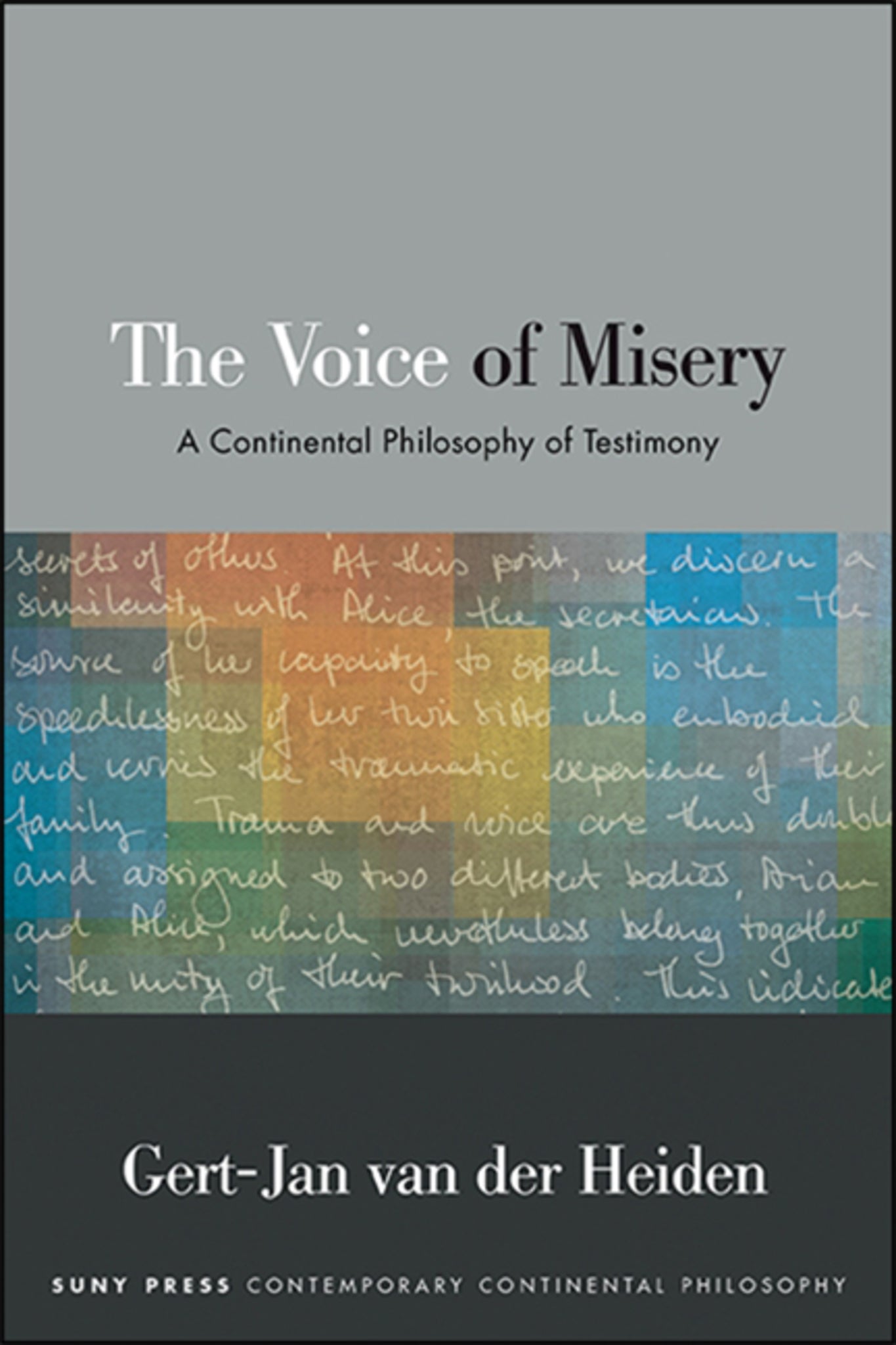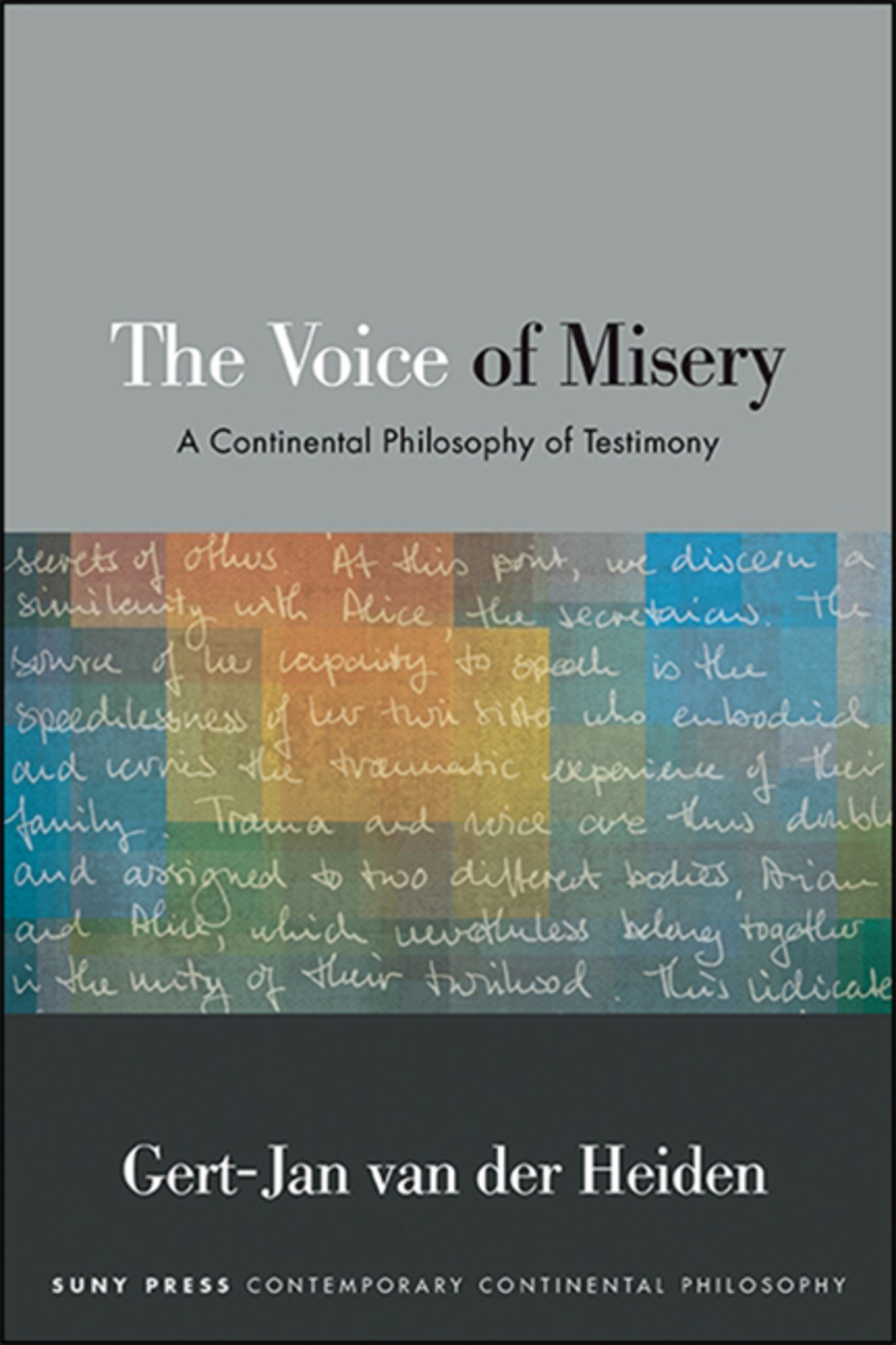We're sorry. An error has occurred
Please cancel or retry.
The Voice of Misery

Some error occured while loading the Quick View. Please close the Quick View and try reloading the page.
Couldn't load pickup availability
- Format:
-
01 January 2020

A systematic study of testimony rooted in contemporary continental philosophy and drawing on literary case studies.
From analytic epistemology to gender theory, testimony is a major topic in philosophy today. Yet, one distinctive approach to testimony has not been fully appreciated: the recent history of contemporary continental philosophy offers a rich source for another approach to testimony. In this book, Gert-Jan van der Heiden argues that a continental philosophy of testimony can be developed that is guided by those forms of bearing witness that attest to limit experiences of human existence, in which the human is rendered mute, speechless, or robbed of a common understanding. In the first part, Van der Heiden explores this sense of testimony in a reading of several literary texts, ranging from Plato's literary inventions to those of Kierkegaard, Melville, Soucy, and Mortier. In the second part, based on the orientation offered by the literary experiments, Van der Heiden offers a more systematic account of testimony in which he distinguishes and analyzes four basic elements of testimony. In the third part, he shows what this analysis implies for the question of the truth and the truthfulness of testimony. In his discussion with philosophers such as Heidegger, Derrida, Lyotard, Agamben, Foucault, Ricoeur, and Badiou, Van der Heiden also provides an overview of how the problem of testimony emerges in a number of thinkers pivotal to twentieth- and twenty-first-century thought.


"Van der Heiden's Voice of Misery is an important contribution to philosophy. It is also a fitting companion for our historical moment. The events of our times bring into focus the demand that we bear witness to human beings' vulnerability to what van der Heiden aptly terms the misery of bare existence. His book is itself a testament to this demand, as well as to the vigilance we need for the profound challenges we face today as we attempt to give voice to one another." — Research in Phenomenology
"…this work moves the concept [of testimony] forward in important and significant ways." — CHOICE
"The Voice of Misery is a special book. Van der Heiden has presented an argument that is poised to challenge discourse in analytic philosophy, reshape approaches in continental philosophy, and give new orientation to interdisciplinary research in continental philosophy and literary theory. The book will find a large readership across the discipline of philosophy and in several areas of the humanities." — Theodore George, author of Tragedies of Spirit: Tracing Finitude in Hegel's Phenomenology
Acknowledgments
Introduction
Part I. To Give a Voice: Six Literary Experiments
1. Letters for the Soul
2. Experiment I. Socrates, the Interpreter
3. Experiment II. Alice, the Secretarious
4. Experiment III. Helena, the Poetess
5. Experiment IV. Johannes, the Poet
6. Experiment V. Bartleby, the Scrivener
7. Experiment VI. Er, the Messenger
Part II. A Distinctive Sense of Testimony
8. Elements of Testimony
9. An Exceptional Attestation
10. A Typology of the Witness
Part III. On the Threshold of Being and Language
11. An Ontology of Testimony
12. The Truth and Untruth of Testimony
13. Subject and Commitment
14. In Lieu of a Conclusion: Celan’s Poetics of Testimony
Notes
Works Cited
Index



